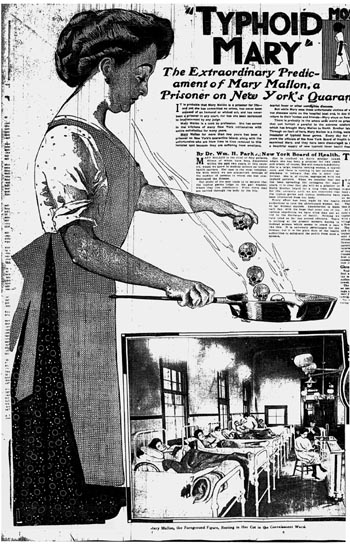Podcast: Play in new window
BOB HIRSHON (host):

Studying disease superspreaders. I’m Bob Hirshon and this is Science Update.
Typhoid Mary was the first known case of what’s known as a superspreader—a person who carries high levels of a pathogen, but has no disease symptoms. According to Stanford immunologist Denise Monack, superspreaders make up 20% of populations, but account for 80% of disease transmission. In the Proceedings of the National Academy of Sciences, she reports that superspreader mice have a unique ability to tolerate disturbances to the microbial ecology of their intestines.
DENISE MONACK (Stanford University):
What we find is that the immune system in these superspreaders is rewired in some way, and it’s making them tolerant to inflammation in the gut.
HIRSHON:
She says these animals’ unusual immune responses could be a key to understanding and treating a host of illnesses in which the immune system overreacts. I’m Bob Hirshon, for AAAS, the science society.
